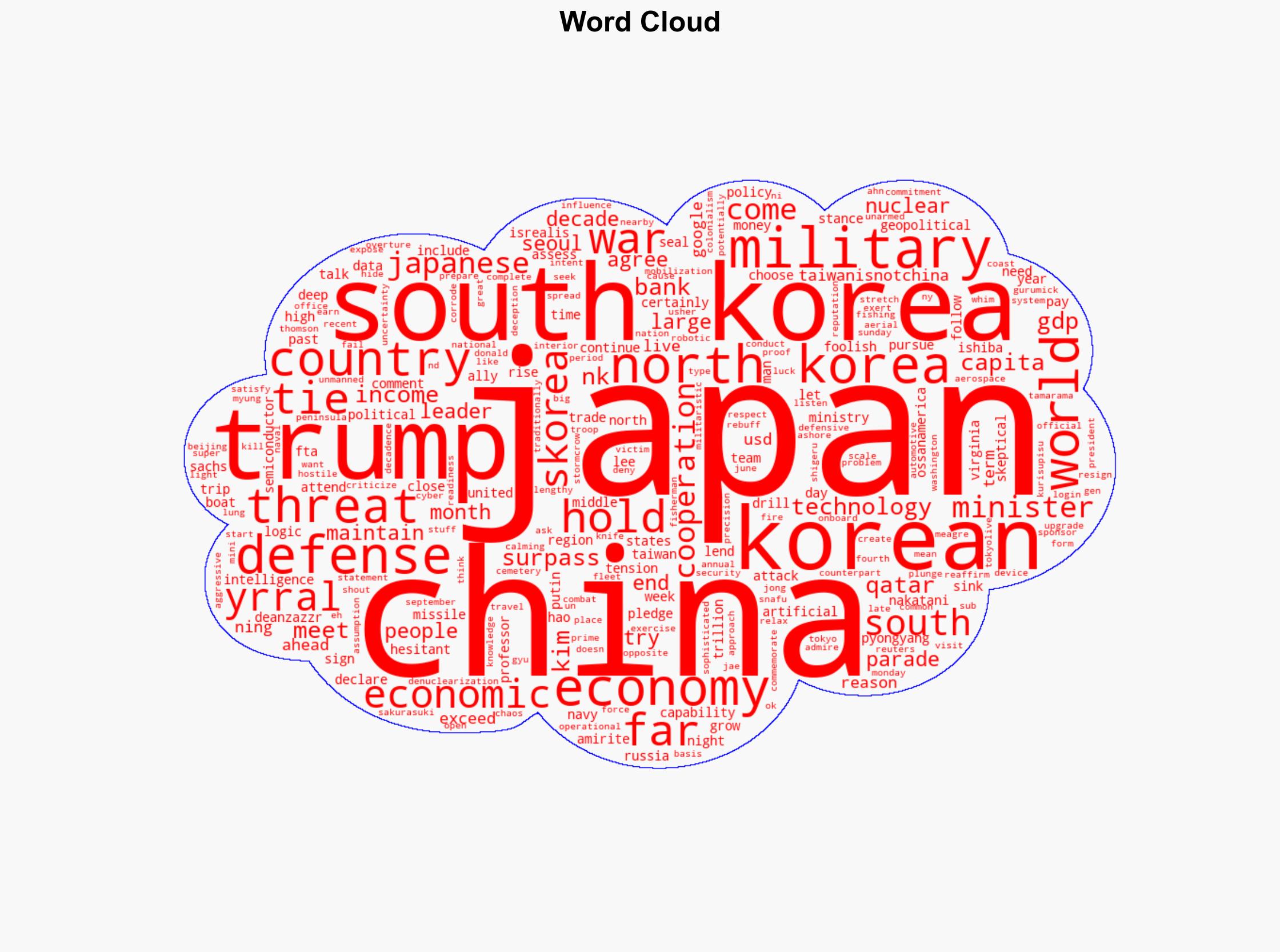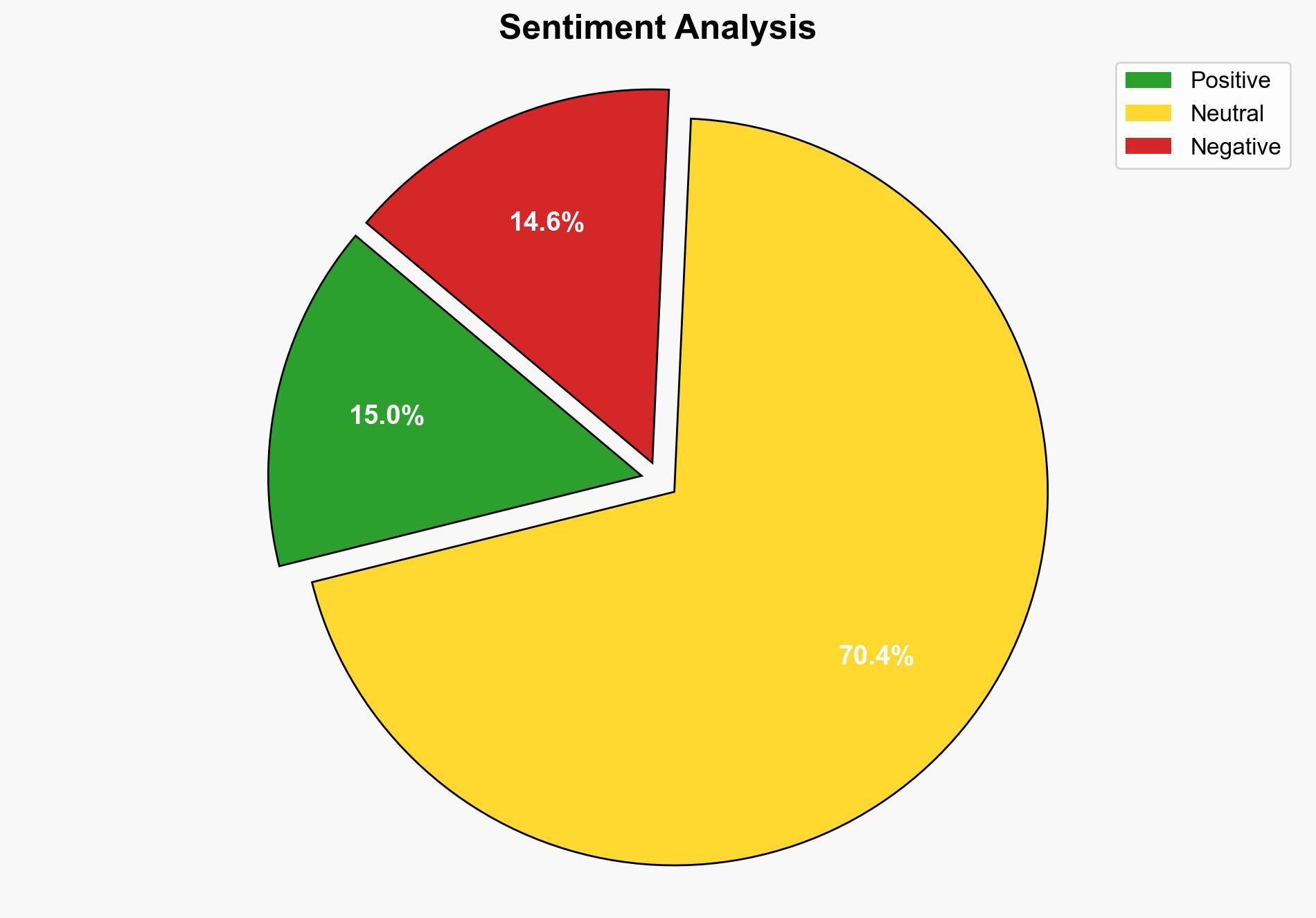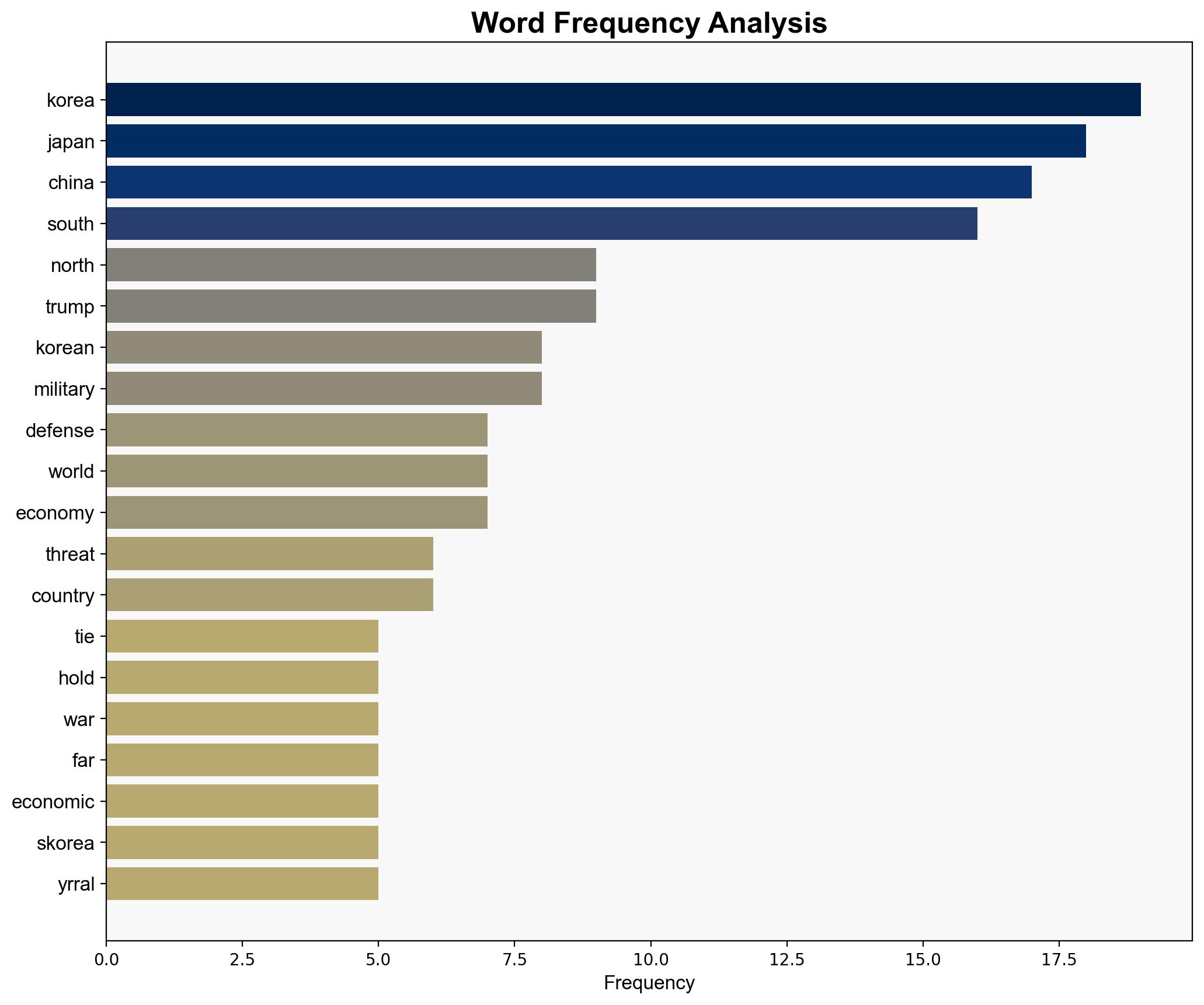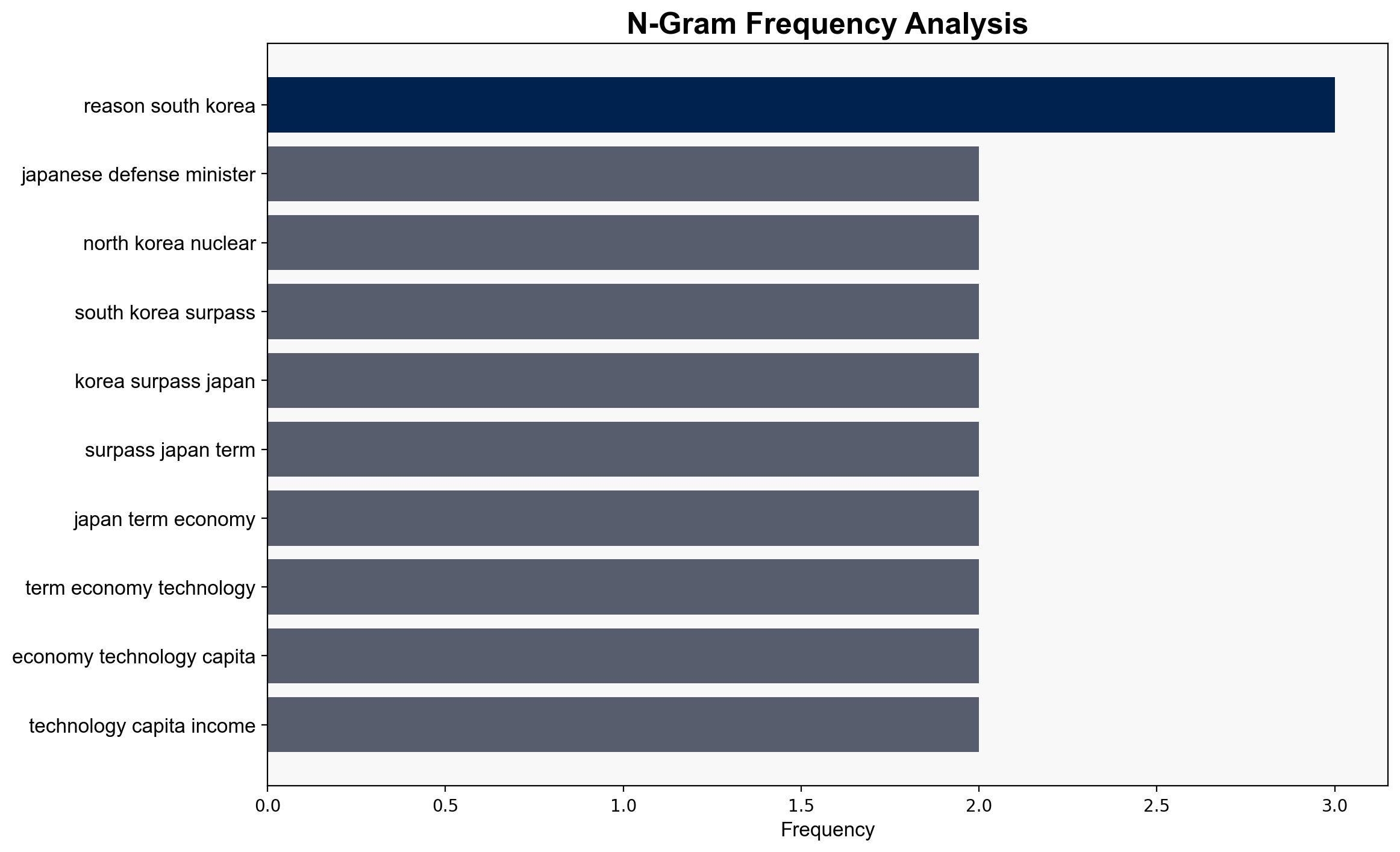South Korea Japan defense ministers pledge to work with US to deter North Korea threats – Japan Today
Published on: 2025-09-08
Intelligence Report: South Korea Japan defense ministers pledge to work with US to deter North Korea threats – Japan Today
1. BLUF (Bottom Line Up Front)
The most supported hypothesis is that the trilateral cooperation between South Korea, Japan, and the US aims to enhance deterrence against North Korea’s growing military capabilities, particularly in light of its strengthening ties with Russia and China. Confidence in this assessment is moderate, given the complex geopolitical dynamics and historical tensions in the region. The recommended action is to continue diplomatic engagement and military preparedness while monitoring North Korea’s responses and regional alliances.
2. Competing Hypotheses
1. **Hypothesis A:** The defense cooperation between South Korea, Japan, and the US is primarily a response to North Korea’s escalating military threats and its growing ties with Russia, aiming to strengthen regional security and deterrence.
2. **Hypothesis B:** The trilateral cooperation is a strategic move to counterbalance China’s influence in the region, using North Korea as a pretext to justify increased military presence and collaboration.
Using the Analysis of Competing Hypotheses (ACH) 2.0, Hypothesis A is better supported due to the explicit mention of North Korea’s nuclear threat and the emphasis on military readiness and technological cooperation. Hypothesis B, while plausible, lacks direct evidence in the source text and relies more on inference.
3. Key Assumptions and Red Flags
– **Assumptions:**
– North Korea’s military developments are perceived as a direct threat by South Korea and Japan.
– The US is committed to its role as a security guarantor in the region.
– **Red Flags:**
– Potential overestimation of North Korea’s immediate threat level.
– Underestimation of China’s reaction to increased military cooperation.
– **Blind Spots:**
– Lack of detailed information on China’s and Russia’s strategic intentions.
– Insufficient analysis of domestic political pressures in South Korea and Japan.
4. Implications and Strategic Risks
The enhanced military cooperation could lead to an arms race in the region, increasing tensions and the risk of miscalculation. Economically, it may strain relations with China, impacting trade and investment. Cybersecurity threats could escalate as North Korea might retaliate through cyber means. Geopolitically, the alignment may push North Korea closer to China and Russia, complicating diplomatic efforts.
5. Recommendations and Outlook
- Continue intelligence sharing and joint military exercises to maintain readiness.
- Engage in diplomatic dialogues with China to mitigate potential escalations.
- Monitor North Korea’s military activities and regional alliances closely.
- Scenario Projections:
- Best Case: Successful deterrence leads to diplomatic negotiations with North Korea.
- Worst Case: Increased military tensions result in a regional conflict.
- Most Likely: Continued military posturing without direct confrontation.
6. Key Individuals and Entities
– Ahn Gyu
– Gen Nakatani
– Kim Jong Un
– Lee Jae Myung
– Shigeru Ishiba
7. Thematic Tags
national security threats, cybersecurity, counter-terrorism, regional focus




